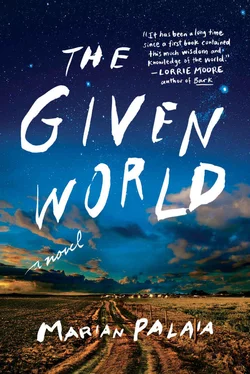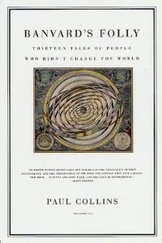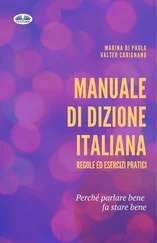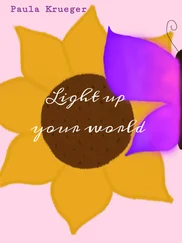When I woke up, the fog had backed off to the horizon and I saw the ocean, as big and blue as anything.
I got out and sat on the hood of my car to watch how this unlikely element moved; watched the tide come in and the waves break, until I had memorized the patterns of each one. I let in some of what I’d seen along the miles of road between me and home, and what I was seeing now, in shades of something other than gray I knew I could use later on to remember my life. I sat there the whole day. I didn’t have any idea which way I’d go when it got dark, but it wasn’t a terrible worry. Something would tell me.
I watched the sun get set to drop into the water and couldn’t take my eyes off it. The lower it fell, the bigger it got, until finally it was a huge orange ball balancing on its edge, millions of miles from me and my car there on the cliff, but it looked so close — close enough I figured I could throw stuff at it. I got my brother’s records out of a box in the trunk, sorted through them. He got into my head easily, despite my best efforts; enough that I could hear him holler in some fake pathetic voice, No, not that one! while I tossed some of those records — the ones I never liked; sappy ones he played for girls and the “Stay out” order (for me) was not negotiable. I flung them off the cliff, laughing, Ha ha ha ha .
For all I knew, there was no bottom and no end to the ocean, and some of those records sailed a long time before they fell into it. They caught the sun and threw it back at me until it wasn’t there anymore, until the last little curve of it flattened out and disappeared, slipping into all that water like the bald head of God reflecting its own image, painted on the twilight sky.
A young woman. Okay, maybe not so young. Maybe forty-two and already a grandmother. Believe me: no one finds this harder to believe than she does. Her name is Rose and she is a little ashamed, on this particular errand, to admit (to herself? to her small passenger?) that she has only ever skirted this reservation. It lies adjacent to a road she has driven many times — the shortest cut between Great Falls and home — but there has never been any reason to actually go in, to stop, until now. That, or she has always sensed she would be unwelcome, or guilty of trespassing, or simply did not belong.
In any event, it is late spring now, and wildflowers — mostly purple lupine, but some red Paintbrush, some dirty-white Queen Anne’s lace — flourish in yards and in the many vacant lots, making the otherwise dust-colored neighborhood a little brighter, almost radiant. She takes that as a good sign. From whom? God does not have a place in all this. That would be the kind of wishful thinking she cannot afford.
She carries a red and black wool blanket, wrapped around some small, obviously alive, thing. It is not a puppy or a newborn calf. It is a baby. Her grandson. She has come to offer him to someone she has never met. Not the boy’s father. His father is in Vietnam, if he has not had the good sense to go AWOL and head for another country; one simultaneously very close and very far away.
She can’t speak for anyone else but imagines they all thought about that passage when the lottery numbers were picked, matched to birthdays, fired like flaming fucking arrows into the hearts of mothers everywhere. But she is not thinking about that now. This is someone else’s child (her daughter’s, but still), and she doesn’t even know if the father — this child’s father, who is possibly already a dust cloud floating on the breeze over the South China Sea — even had a mother. Anything, at this point, seems possible. Maybe because there is this baby, who, created a few months later, might now have been… nothing. A memory. Carried regret. When the decision came down from the court, they didn’t talk about it. It was too late. And this boy’s mother was mostly beyond talking by then anyway.
Rose knows a family name and approximate location because of letters sent to her daughter when she still lived with them, and a handful after she left. Early postmarks said Oklahoma, later ones Texas, but the last one came from Montana.
A man answers the door. He is tall and dark and reminds her of the young man she has met only the one time. She says hello, and folds the blanket away from the baby’s face. “I believe,” she says, holding the boy out awkwardly so the man can see him better, “this is your grandson.”
“My grandson,” the man says, as if trying to decide if the word could have more than one meaning. “And he came to you by way of—”
“My daughter.”
He raises one eyebrow. “I see.”
Rose nods. The words are not a challenge but an acknowledgment. That, at least, is how she hears them. “Yes.”
“And your daughter?”
“Is in Missoula, I think. She left him with us. To find a family for him.”
“Leonard can not be this baby’s father.”
“Leonard? I don’t know who that is. The boy I know is called Darrell.”
The man nods. He does not look surprised or wary, as she had thought he might. “Darrell is my nephew.”
“Oh,” Rose says, knowing she still has to say what she came for, even if she doesn’t know how to say it, especially now. The man waits, not impatiently, and she steels herself, slowly blowing out a bellyful of air before she speaks again. “Do you think— Can you take him? I mean, would you? My husband and I, we can’t keep him. I’m afraid—” She wants to explain, about her missing son, her already lost daughter, her inability to function some days, to keep track of days at all, let alone keep track of this tiny person. But she can’t explain. It would be too much.
The man laughs softly. To Rose, the laugh sounds sad, or resigned, or both, but she doesn’t trust herself to judge what anyone else is feeling. Since she doesn’t even know what she is feeling, it would hardly be fair.
“Yes,” the man says. “I can take him. I can take care of him.”
Is it the answer she wants? God — him again — knows. Simple enough, she thinks. Simple as that. Done.
She looks at the baby, and back at the man. The resemblance is more than dark skin and eyes and hair. “I know this is a terrible thing to ask,” she says. “But do you want him? Or do you—”
“Not so terrible,” he says. “I understand why you would ask.” He looks past her, across the road, up into the seemingly empty hills. “I would like to have him here with me. My boy died two years ago. He was seventeen. And now my nephew is gone too. This house is pretty damn empty.” He looks down at the baby in Rose’s arms. “Seems right,” he says. “I think I know myself well enough by now to trust that.”
Rose finds she is jealous but doesn’t say.
“Don’t worry.” He touches her shoulder. “He’ll be okay. Tell your daughter. He’ll be fine here.”
“I’ll tell her.” It does make sense. As much as anything else does. She hands him the blanket, the baby. The boy looks at him, out of pale eyes that don’t really go with the rest of him. He looks quite serious, like a little old man; aside from the eyes, almost like a miniature of the man holding him.
“His name?”
Rose says they call him Slim.
The man smiles as he repeats it. “How old is he?”
“Sixteen weeks.”
“Small.”
“Yes. He was premature, but the doctor says he’s healthy now.” She reaches out a hand and the boy wraps his tiny fingers around one of hers. She waits for him to let go, and begins to turn away.
“Would you like a cup of coffee,” the man asks, “before you leave?”
She realizes her legs feel like they might not hold her up much longer. “I’d like that,” she says. “Thank you. I’d like that very much.” She sits on the front step. He crouches to give the baby back to her.
Читать дальше












